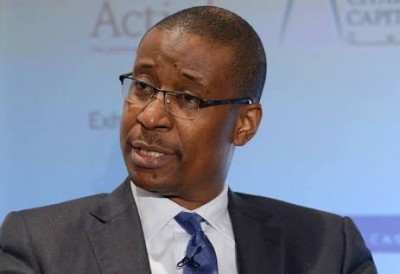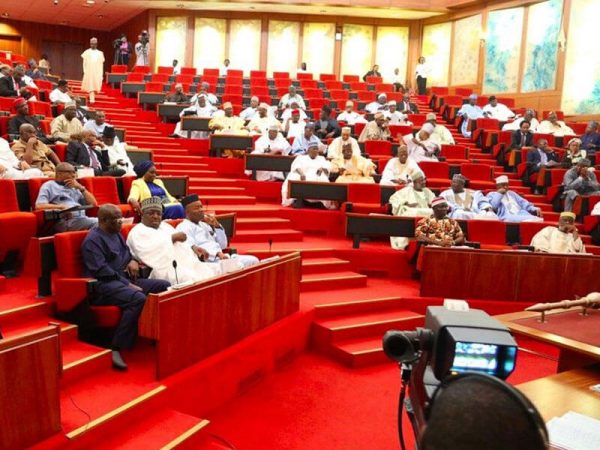Dwindling resources affecting fight against anti-labour practices — Ngige

The Minister of Labour and Employment, Senator Chris Ngige, has said the decline in government revenue is hampering efforts aimed at fighting child labour, cheap labour and human trafficking.
The minister, while speaking at the Africa Growth and Opportunity Act Ministerial Roundtable at the Department of Labour Building, Washington DC, United States, said the stoppage of Nigeria’s crude purchase by the US had escalated the revenue shortfall.
A statement made available by the Deputy Director (Press) in the ministry, Mr. Samuel Olowookere, stated that the stoppage of oil trade between Nigeria and the US was a constraint to the progress of the Africa Growth and Opportunity Act and had led to low foreign exchange receipts from the US.
He urged the US government to demonstrate stronger commitment to improved economic ties with African nations through balanced trade relations.
Speaking on the theme, ‘Trade and workers’ rights: Inclusive economic growth in Africa through trade,’ Ngige said that the capacity of Nigeria to tackle anti-labour practices such as child labour, cheap labour and human trafficking was being hampered by dwindling resources.
He added that poverty at the low-income level had made the fight against anti-labour practices at the base difficult.
The minister urged the US to assist African countries in the entire agricultural value food chain, including production, processing and preservation as well as give increased educational assistance to farmers.
“The founding ideal of the AGOA is to foster a symbiotic economic cooperation between Africa and the United States. However, the capacity of African nations such as Nigeria to effectively tap into the full potential of the body is being checkmated by limited resources. Therefore, there is a need for America to rethink initiatives that once made AGOA attractive to African countries,” Ngige said.
According to him, rescinding its decision on Nigerian crude is one of such steps that can be taken to buoy the country’s economy and help it regain enough capacity to protect workers’ rights and promote decent work and inclusive economic growth.
“The US must do more to assist junior partners by extending some labour projects and technical aid being executed in some African countries such as Madagascar, Zambia, Kenya and Nigeria,” he added.
Speaking further on Nigeria’s initiatives for improving internationally recognised workers’ rights, the minister said the country had ratified and domesticated eight core conventions of the International Labour Organisation, including Convention 182 on the worst forms of child labour that deals with child rights and fair labour practices.
He drew the attention of the international community to the strong backing for fundamental freedoms and labour rights enshrined in the Nigerian constitution, especially in Section 40.
Ngige added that the administration of President Muhammadu Buhari had championed and deepened the cause of social dialogue and unabridged rights of workers to unionise, citing the intervention in the banking sector as an example.








